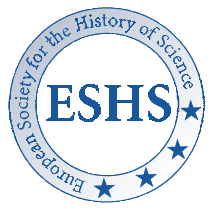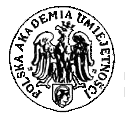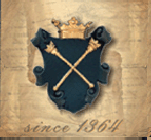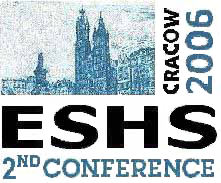Last modification: 24 September 2008
Online Book of Abstracts - A Thematic List:
SESSIONS / SYMPOSIA
Edited by Michal Kokowski
http://www.cyfronet.pl/~n1kokows/home.html
n1kokows@cyf-kr.edu.pl
Symposium on the History of Science and Education E-1.
HISTORY OF SCIENCE IN EDUCATION AND TRAINING IN EUROPE:
WHAT NEW PROSPECTS?
ORGANIZERS OF THE SYMPOSIUM:
Claude Debru (Paris, France)
claude.debru@ens.fr
Jaroslav Folta (Prague, The Czech Republic)
jaroslav.folta@ntm.cz
CHAIRMAN:
Claude Debru (Paris, France)
claude.debru@ens.fr
E-1.
Some reflections on recent developments and possible initiatives to foster the role of the history of science in education and training in Europe
Claude Debru (Paris, France)
claude.debru@ens.fr
Since the various initiatives which have been taken recently in Europe in order to foster the role of the history of science in education and training (one of these initiatives was taken by the ALLEA network and the European Commission in 1998), several developments took place in various European countries. It would be highly desirable to know better about all these developments, sometimes positive, sometimes less so, in order to get an overview of the present situation and to make recommendations to improve it whenever desirable.
Among the developments which took place more recently is the continuous development of the teaching of history of science and of philosophy of science at many French scientific universities and at Institutes for the training of teachers (IUFM), which seem to be an important arget, due to the fact that the history of science is largely viewed by influential scientists as a good way to help to the understanding of scientific concepts and ideas in a context where the teaching remains quite abstract and dogmatic, and also to help the understanding of science as a major cultural and social phenomenon. At major scientific and interdisciplinary universities in France, like the University of Paris VII and the University Claude Bernard in Lyon, the hiostory of science is coupled at the research level to the didactics of scientific disciplines, and joint appointments are increasing. Moreover, other academic communities like historians, philosophers, sociologists are increasuingly interested in the history of science and contribute to its diffusion at universities. It seems that in Italy a great nuimber of professorships at universities have been created for the history of science. In other countries the situation is less favorable.
Which initiatives can be taken again, and at which level, to make better use of the important wealth of knowledge which the development of research in the filed of the hostory of science has brought about in recent years ? Many instruments for networking do exist, but it remains difficult to get access to them and to succeed in getting them. We should think about the most appropriate ways and levels of continuing action, be it at the European scale or at more regionally defined scales.
E-1.
History of sciences in the French teacher education
Muriel Guedj (Montpellier, France)
muriel.guedj@montpellier.iufm.fr
Sylvain Laubé (Bretagne, France)
sylvain.laube@bretagne.iufm.fr
For a long time, the French education ministry showed a great interest by introducing history of sciences in education. Recently, this became more evident in secondary schools with the specification of different learning subjects which had to be viewed with an historical approach. But, because of the lack of practical instructions and training, the teachers have some difficulties to insert this point of view in their lessons.
Last year, the ReForEHST (Recherche et Formation en Epistémologie et Histoire des Sciences et des Techniques/Research and Training in Epistemology and History of Sciences and Technics) group was constituted between several IUFM (Institut Universitaire des Maîtres/high school for teacher education) in order to favour exchanges within a community of teachers, trainers and researchers, to develop new tools to help teachers and promote research.
Furthermore, we consider that the following questions still have to be discussed:
- Which history of sciences should be taught, why should it be taught?
- Which school subject matters could be concerned and what are the connexions with sciences education?
- What should be the main avenues in training teachers in a positive way to promote the history of sciences?
Our aim is to focus on those questions in order to specify the practical aspects of the official instructions. Also, we suggest various orientations in teacher education. Particularly, we propose to emphasize the contribution of history of science in the following set of themes: - methodology of sciences (what is a well argued-speech? what is rationality?...),
- structural knowledge of education system,
- place of science in society,
- science and citizenship,
- science and language.
We will present the actions that the group has already undertaken (two colloquium, a web site) and our perspectives in resolving the problems we submitted.
E-1.
Historical experiments as an access to epistemological aspects
in physics teacher training
Peter Heering (Oldenburg, Germany)
peter.heering@uni-oldenburg.de
In the programme for physics teachers at the Carl-von-Ossietzky University Oldenburg the history of physics plays a central role. Apart from using text on the historical development of physics as well as historical source materials, we are also using reconstructed historical apparatus in a compulsory lab course. In working with these apparatus, the students are not only confronted with historical as well as scientific questions. They also have to deal with epistemological questions that are closely related to the nature of science and the nature of scientific knowledge production. Moreover, the students are confronted with positions that are based on knowledge systems that are different to our modern scientific knowledge but which are related closely enough to be accessible to the students. Apart from that compulsory course, the students have also the opportunity to prepare their final master thesis on a particular historical experiment. In analysing this experiment, they have to develop scientific as well as historical expertise. However, the scientific expertise is developed in a more self-reflexive manner, thus the students are getting aware of how the are constructing a stable experimental situation.
In my presentation I am going to discuss the opportunities for science teacher training offered by the use of historical experiments in more detail and will exemplify these characteristics by examples from our courses.
E-1.
History of science Master's Program - transfer and adaptation:
the Lithuanian case
Juozas Al. Krikstopaitis (Vilnius, Lithuania)
krikstop@ktl.mii.lt
Romualdas Sviedrys (Brooklyn, N.Y., USA)
rsviedrys@hotmail.com
The post-Soviet situation provided all three Baltic States with an opportunity to propose and implement new study programs more in line with Western approaches, both in terms of program content as in methodological approaches.
In the case of Lithuania, we succeeded to transfer a History of Science Master's degree program to the Kaunas Technology University from Brooklyn's Technological University (USA), and starting with the fall semester of 1999, it has been preparing students in this new field. There were some local adjustments to include some "Philosophy of science", but we feel that our program has incorporated some original features that may be of interests to a wider academic public.
Our program incorporates three truly original courses, perhaps unique in Europe. First, in our attempt to tie history of science to the humanities, we introduced a course called "The humanities foundation in science and technology". Second, in our attempt to place an emphasis on the diffusion of science and technology transfer to other countries, both historical a contemporary, we introduced a course called "Technology and science transfer to other societies". This course deals not only with a country to country technology transfer, but with two other types of transfer - from idea or small scale laboratory to industrial practice, or from one application or field to another. And finally, today, technology forecasting has become vital to understand the rapid developments in high technology areas that will be key to economic growth and development. Our course, "Technology forecasting", attempts to draw attention to this important topic.
These three courses we feel compliment harmoniously the traditional history of science program. The last two courses, "Technology transfer" and "Technology forecasting", can be viewed as an outgrowth of history of technology, or rather, as an example of what can be called applied history of science and history of technology. In our presentation we will cover different aspects of introducing such a program in an otherwise difficult educational environment.
E1 / RE (Poster).
Young students turn the history of science into an educational theatre
C. Zaragoza (Catalonia, Spain)
J.M. Fernandez-Novell (Barcelona, Spain)
jmfernandeznovell@ub.edu
Most primary and secondary school students do not appreciate how important the contribution of science and technology has been to many aspects of our lives such as transport, health, agriculture, the environment, etc. Teachers need to stimulate pupils interest in science and also increase their general knowledge in this field. In this context, we present an educational experience, using a lesson class in the history of science; we have written and acted a play, which we filmed to learn about different periods of history in the study of science with our pupils as actors, good actors.
Our play is based on short stories that were written by us in collaboration with our pupils. The play is about the life of famous scientists such as Archimedes, Galileo, Newton, Pasteur and others ... and also deals with important events in the world of science, e.g. the discovery of metals and fire in Prehistory or when a doctor realised that recovers from battle wounds would be aided the by cleaning injuries. Furthermore, the film of our play has been shown in various secondary school classes and pupils have said that the film was of great help in understanding science.
By making plays in class concerning the history of science, teachers could open new perspectives for their pupils to explain, for instance, the fundamental role of a physics law. In this context, associating a scientist to his/her discovery is very positive for that scientist image; the play can emphasize his/her great contribution to Physics, Chemistry, Astronomy, Biology, Medicine, ... and show the historical context in which something was discovered together with some of its consequences for society in general.
In conclusion, we suggest take activities like the above in class, so as to help our pupils learn more about the history of science and to increase pupils' awareness and knowledge of science background.
Symposium on the History of Science and Education E-2.
"Varia"
ORGANIZERS OF THE SYMPOSIUM:
Claude Debru (Paris, France)
claude.debru@ens.fr
Jaroslav Folta (Prague, The Czech Republic)
jaroslav.folta@ntm.cz
CHAIRMAN:
Andrzej Pelczar (Krakow, Poland)
Andrzej.Pelczar@im.uj.edu.pl
E-2.
Teaching mathematics through history: Some trigonometric concepts
Maria Rosa MASSA (Catalunya, Spain)
m.rosa.massa@upc.edu
Fatima ROMERO VALLHONESTA (Catalunya, Spain)
fromero1@xtec.cat
Iolanda GUEVARA CASANOVA (Badalona, Spain)
iguevara@xtec.cat
History can be useful to teach Science. The History of Science can provide tools so that students will be able to achieve mathematical concepts successfully. The group of History of Mathematics of the Barcelona Association for Teaching and Learning of Mathematics (ABEAM) is working on the project "The source and the development of trigonometry throughout different civilizations", which analyses the history of the trigonometry and its implications for the classroom. The aim of the project is to choose key historic texts in history of trigonometry which can help students to understand the trigonometric concepts easily. This research covers from the Ancient times to Regiomontanus period (1436-1476). The goal of this contribution is to show a brief summary of the analyzed texts and to explain some experiences implemented in classroom of comprehensive schools to illustrate how teachers may introduce some trigonometric ideas using History of Science.
E-2.
Historical case studies as teaching tools:
A case from erythrocyte aging research
Maria Strecht Almeida (Porto, Portugal)
msalmeid@icbas.up.pt
It is well known that case studies provide a privileged chance for the implementation of inquiry-based teaching methods and, thus, constitute a valuable resource in science education, promoting independent work and engaging students in the learning process. Historical case studies are often described as science in action stories. The focus of such stories may be the dynamics of a research domain, an issue we might explore by the epistemic objects constructed within given experimental systems, through specific material practices.
This paper examines the genealogy and changing pattern of a specific biomedical problem - erythrocyte aging - in view of a teaching and learning scenario at the undergraduate level in the field of life sciences.
E-2.
Bridging the gap between secondary school and the history of science:
An educational experience
C. Zaragoza (Catalonia, Spain)
J.M. Fernandez-Novell (Barcelona, Spain)
jmfernandeznovell@ub.edu
In spite of the history of science being essential to learning science it is not taught in secondary schools in Spain. Young students learn theory of natural selection, law of conservation of mass, three laws of motion, relativity, etc. However, they don't usually know who discovered it or when and how it was found because the history of science is not present in Spanish's science textbooks. The addition of the history of science in Chemistry Textbooks was already discussed by Lavoisier in the 18th century.
The objectives and contents at the Catalan secondary school scientific curricula show us little interest about the history of science and technology from the educational authorities. To bring history of science close to secondary schools students and give them the opportunity to gain an informed opinion about these theories and laws we propose a deep revision of science curricula. In this way, we designed an educational experience with little changes in our science teaching.
First, a questionnaire was used to ask about scientists and history of science to students, results were no acceptable. There is a close relationship between their answers and the amount of the history of science in textbooks. Secondly, we spent part of science classes on searching and teaching the history of science (the first metals, Galileo period, Marja Sklodowska life, etc.), with the aim of updating student's science knowledge.
This educational activity took up two weeks of the Chemistry and Physics course. Having finished the experience, students were asked for feedback. The majority showed and assured that they had gained knowledge. We suggest take this activity, using the history of science, as a reference model for other science disciplines.
Symposium on Research and Educational Matters RE
HISTORY AND THE PUBLIC UNDERSTANDING OF SCIENCE
ORGANIZER:
Michal KOKOWSKI (Krakow, Poland)
www.cyfronet.pl/~n1kokows/home.html
n1kokows@cyf-kr.edu.pl
CHAIRMAN:
Martin Counihan (Southampton, The Great Britain)
counihan@soton.ac.uk
RE.
Public understanding of the history of science
Martin Counihan (Southampton, The Great Britain)
counihan@soton.ac.uk
For some years now, UK scientists have been encouraged to promote the public understanding of science (or "public engagement with science", to use a more recent phrase) through outreach activities of various kinds. Research funding bodies commonly require scientists to communicate their findings to lay audiences and to engage in dialogue with the public on the ethics, social impact, and purpose of science. Courses on science communication or on "science in society" are now available to many science students. Across Europe, the EU has supported numerous initiatives of this kind.
This paper draws attention to these activities and argues that, while dialogue between scientists and the public may have great value, it does not necessarily advance the public understanding of the history of science. Among scientists as well as the public, outdated or distorted views of the history of science are remarkably pesistent and may be perpetuated by uncritical repetition. Historical relationships between science and religion, especially, continue to be a matter of confusion. This is a pity because the cultural integration of Europe should, arguably, entail a clear understanding of the crucial unifying role of science in Europe's past and of how it might therefore help to shape our future. It may be that Europe's historians of science, collectively, are missing an opportunity here.
Several controversial topics are taken to illustrate and develop these points. Examples are the alleged uniqueness of the Greeks, the role of Islam in the history of science, the role of the medieval Church, Baconian versus Newtonian views of the purpose of science, the continuing history of the idea of Darwinism, and (focussing on a specific policy issue) the current proposal that a European Institute of Technology could do the same job for Europe that MIT did for the US.
RE.
Public understanding of science:
The example of astronomy at the Observatoire de Paris
Suzanne Débarbat (Paris, France)
Suzanne.Debarbat@obspm.fr
After about five decades, through activities at the Observatoire de Paris, some remarks can be given related to the field of astronomy. Contacts with the Public were made via guided tours, conferences, popular activities based upon papers and six years as editor-in-chief for l'Astronomie (Société Astronomique de France, created by Flammarion), a magazine for amateurs, exhibitions organized by the Paris Observatory, mostly from 1967, more recent events such as "Journées du Patrimoine", "La Science en Fete", "Portes ouvertes", ...
To be understood by the Public, the scientists who want to make known their researches and works, need to adapt the presentation to its level of knowledge, before submitting the recent results. From the general public reactions, it is seen that, in most cases, what was known in astronomy from the Antiquity to the XVIIth century is, in general, quite enough. This has led to use historical developments allowing to cover the whole evolution of astronomical research, the Public being able to understand what is at its proper level. The subject of the RE meeting gives the opportunity to recall studies and papers in the field "Information of the Public" by the Association des écrivains scientifiques de France (AESF) which disappeared unfortunately more than a dozen of years ago.
RE.
History and the Public understanding of science: Problems, practices and perspectives
Robert Fox (Oxford, The Great Britain)
robert.fox@history.ox.ac.uk
The role of history in advancing the public understanding of science (PUS) has been a matter of debate since the PUS movement took shape in Europe in the 1980s. In this paper, I review some of the successes and failures of historians' contributions to the movement and reflect on recent changes that, at least in principle, have put the emphasis on dialogue between scientists and the general public rather than on the transmission of information from the experts to a lay audience. What role has history played in these changes, and what role might it play in the future? Have we seen an end to the suspicion that much of the scientific community once felt towards the humanities and the social sciences as vehicles for understanding?
RE (Poster).
Galileo at the cinema
Cristina Olivotto (Milano, Italy)
cristina.olivotto@gmail.com
Antonella Testa (Milano, Italy)
antonella.testa@unimi.it
Historical films are a precious tool for all kind of historians: the interpretation of a historical character or period made by the authors is an important key to understand how the historiography leaks the popular knowledge; which aspects of the history appeared more relevant and symbolic in the years the film was produced; which are the processes of spreading historical knowledge by unconventional ways.
For this reason the authors are interested in studying the complex intertwinings among cinema, history of science and relations (if any) among the different professionals involved (directors, authors, scientists, historians, advisors).
Since his birth, more than one century ago, the cinema has been playing a relevant role in the dissemination of portrays of scientists and of their activity. Among them one of the main personalities of the history of science: Galileo Galilei. This paper presents a selection of three significant films on Galileo: Galileo Galilei (by Luigi Maggi, Italy, 1909); Galileo (by Liliana Cavani, Italy, 1968) and Galileo (by Joseph Losey, Great Britain, 1974).
The aim of this work is to analyse which Galileo's biography elements are the most interesting for directors and authors of the cinema. Taking into account the different contexts in which the films were realized, the work will analyse the role of the historical and scientific advisors; then it will try to answer the question if contemporary or past historiography thesis about Galileo and its activity were relevant or if other systems of knowledge were the main source for authors and directors considered.




